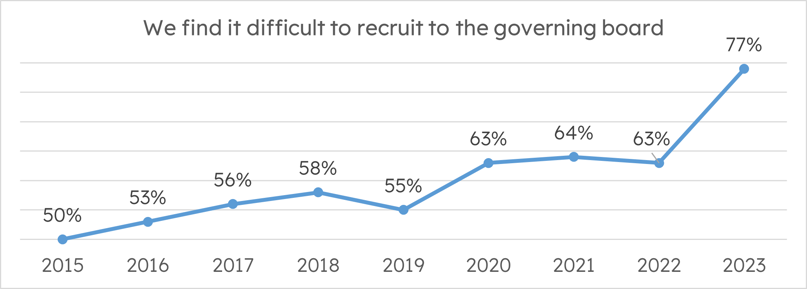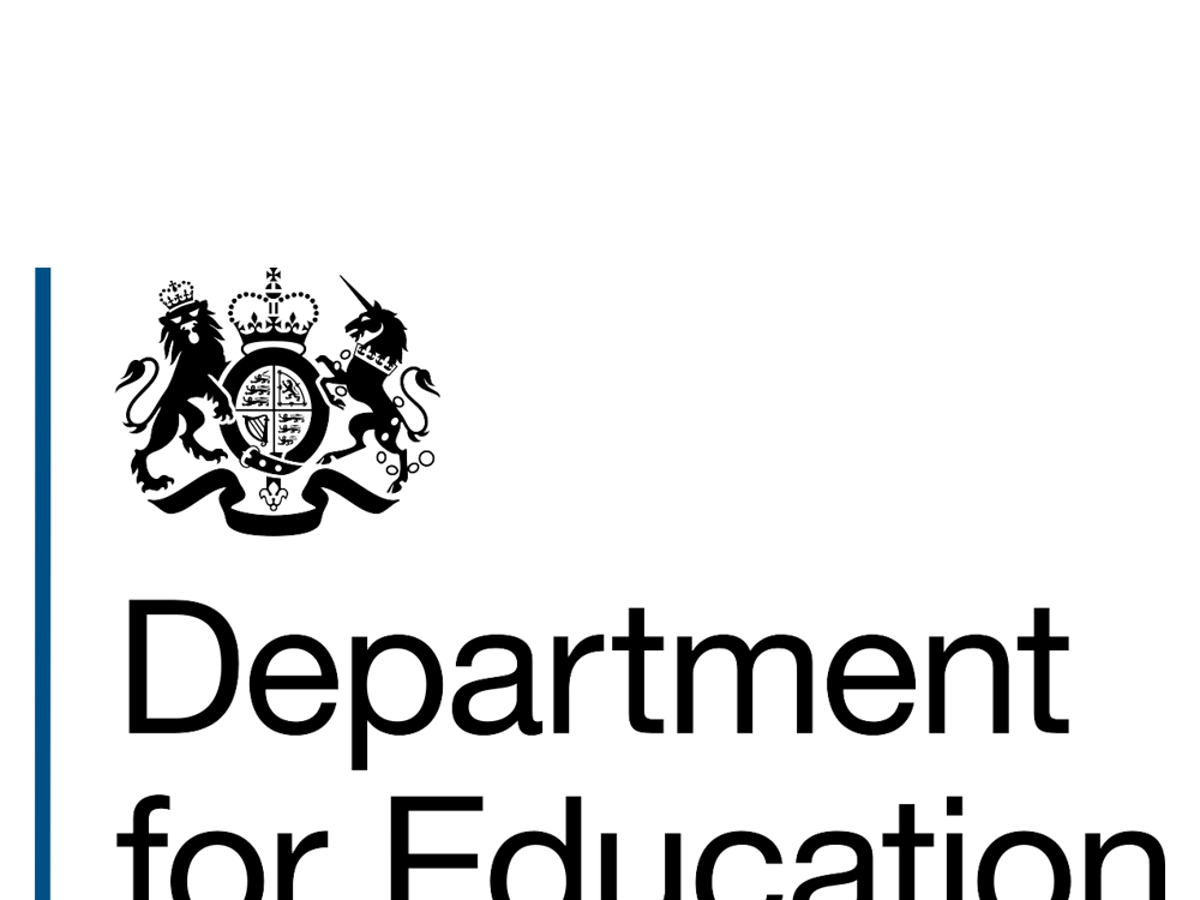Shining a light on governance workload and pressures
Emma Knights, NGA's Co-Chief Executive, reveals the findings of our governance workload report, Taking Stock of Governance Workload, - highlighting the pressures governance volunteers told us made their role so challenging.

The report Taking Stock of Governance Workload published yesterday is very much part of NGA’s Visible Governance campaign. Understandably, workload conversations in the schools world focus on staff: this is an issue governing boards wrestle with, and Emma Balchin and I are pleased to be on DfE’s current task force on the topic. On the other hand, apart from here at NGA, of course, governance workload has been largely overlooked to date. Yet, quietly behind the scenes, it is becoming overwhelming for many volunteers. This cannot continue under the radar.
Pretty much everyone knows it is difficult to recruit volunteers to boards, so that becomes business as usual in the discourse – what’s new about that? We all get on with supplying good practice and tips for success for local recruitment. This is not enough – this year, NGA’s annual survey recorded the steepest rise in that challenge of recruitment, which affects all types of boards.

The hours and the relentless pressure have become too much for many, with a quarter of volunteers and a third of chairs considering throwing in the towel altogether. It was not just the large amount of time required but also the emotional toll.
Our report explores the issues through exit interviews with recently resigned volunteers and a staggering 2,500 contributions on the pressure trustees and governors face. The governance community has spoken, and NGA is on a mission to ensure everyone in the school and trust leadership world is aware.
NGA is deeply frustrated that, where evidence and knowledge are held in high esteem in most parts of the education sector when it comes to governance, anecdotal is the order of the day, often tinged with disrespect and sometimes even ridicule. Very different extremes frequently misrepresent the image of the board room – the village hall-esque committee sipping tea and nodding to the corporate suits coming with their own agenda, disregarding education expertise.
Of course, NGA doesn’t claim every governing board in the land is excellent, but discourse based on ignorance detracts from the incredibly important role and what it takes to govern well. Unless you have governed at a school or trust which does not employ you, you are unlikely to fully understand the time, the complexity, and the judgement required. Here at NGA, we have the privilege of daily conversations with those that do and the care they are taking to ensure governance is working well is humbling.
What’s more, this huge societal contribution is made free of charge, and if it were to be monetised, we are talking big money. The idea of remuneration came up during the research: NGA remains an organisation committed to the voluntary ethos, but listening to all is one of our values, so in February, we will be hosting a debate for our members on the issue of payment.
Events in the last few years have exacerbated governance workload and pressures. The well-documented long list of systemic challenges - funding, Ofsted, staff recruitment, increasing safeguarding, behaviour and attendance concerns, more SEND pupils - and the widening expectations of schools due to changes in society - rising poverty, mental health challenges, parental expectations and reduced public services – all apply to the work of boards too.
Relying on unpaid goodwill has limitations, and those limitations need more respect and much more attention. The workload and well-being of volunteers must be considered if we are to retain a sustainable model of governance for the sector. This is a long overdue conversation that we are committed to leading.
There was evidence board practice can be part of the problem, but improving board practice - while important and the reason NGA exists - is not the whole solution. We are running a webinar open to all on how to govern efficiently in January.
Systemic respect and support are required. Do you know that the Department for Education does not invest one penny in developing volunteers? While rightly increasing its funding of leadership qualifications, it decided to remove all funding for volunteers a few years ago. Our report asks for a training allowance for governing boards for them to spend as they see fit as our report made it clear that volunteers needed tailored support to fit their skill and knowledge gaps.
We set ourselves the task of identifying responsibilities that could be removed from boards and we came up with one: exclusion review panels. I have written more on this topic in TES. This will be part of the discussion at our leadership forum in January, along with consideration of whether the number of exclusions can be reduced while keeping the needs of all pupils centre stage.
Despite all these warnings, it is important to record that the governance community generally remains an incredibly motivated, generous and inspiring group, volunteering to oversee positive change for children and young people. Governing schools can also be a hugely rewarding experience, with many enjoying being part of an educational community. It also can provide the development opportunity for a strategic leadership role with a profound purpose. We will continue to work with partners to convince employers to support their volunteer staff.
When encouraging people into the role, we must be realistic about the time, commitment and responsibility; this needs a careful balance. We need to get back to the position where the talk about the joy of governing outstrips that of the pressures.
Many thanks go to colleagues Mark Blois Partner and Victoria Hatton, Senior Associate at Browne Jacobson, for their contribution of a chapter on the rising challenge of dealing with complaints, a topic which is now the subject of discussions with the Department for Education.

Former Chief Executive
After 14 years with NGA, Emma has departed from her role as Chief Executive. During her tenure, Emma was a strong advocate for the school governance community, engaging with legislators, policymakers, education sector organisations, and the media on a national level.









































